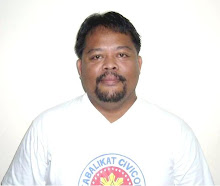Wednesday, June 18, 2008
DAVID KELLY
Weapons expert Dr. David Kelly died in suspiciouscircumstances in July 2003 days after admitting tothe Foreign Affairs Select Committee that he had spoken toBBC reporter Andrew Gilligan. The BBC subsequently reportedthat the danger Iraq posed had been exaggerated inthe government dossier of September 2002, which warnedthe British public of the existence of certain weapons ofmass destruction.The Hutton Inquiry set out to determine whether or notthe circumstances leading up to Dr. Kelly’s death couldhave had an effect on his state of mind, or whether thesecircumstances might have influenced the actions of others.Yet in a statement delivered by Lord Hutton on January 28,2004, the following ruling was made: “I am satisfied thatDr. Kelly took his own life by cutting his left wrist and thathis death was hastened by his taking Co-Proxamol tablets.I am further satisfied that there was no involvement by athird person in Dr. Kelly’s death.”The forensic pathologist at the Hutton Inquiry, Dr.Nicholas Hunt, judged that Dr. Kelly bled to death from acut to the wrist, but other experts were skeptical of this conclusion. In a letter to the Guardian, medical specialistsDavid Halpin, C. Stephen Frost and Searle Sennett expressedtheir view that this was “highly improbable.” Dr.Hunt stated that only the ulnar artery had been completelytransected. This complete transection would cause the arteryto retract and close down, enabling the blood to clot.To have died this way Dr. Kelly would have had to losemuch more blood than the ambulance team reported.Alexander Allan, the forensic toxicologist at the inquiry,said that the blood level of the drug’s componentswas less than a third of what is normal for a fatal overdose.Halpin, Frost and Sennett conclude their letter by stating:“We dispute that Dr. Kelly could have died from haemorrhageor from Co-Proxamol ingestion or from both.” Thistheory raises the question of the real cause of Dr. Kelly’sdeath—and, furthermore, why it is not being made knownto the public.Dr. Kelly denied that he could have been the BBC’smain source and the Ministry of Defence claimed that nosuggestion was made that Dr. Kelly should lose his jobover the issue. However, a friend of Dr. Kelly, Britishdiplomat David Broucher, told the Hutton Inquiry that inan e-mail hours before his disappearance, Dr. Kelly hintedat his crisis with lines such as “many dark actors playinggames.” In other conversations, Kelly seemed to predict hisown death, saying that he would “probably be found deadin the woods” if the British invasion of Iraq was to goahead.
Subscribe to:
Post Comments (Atom)

No comments:
Post a Comment